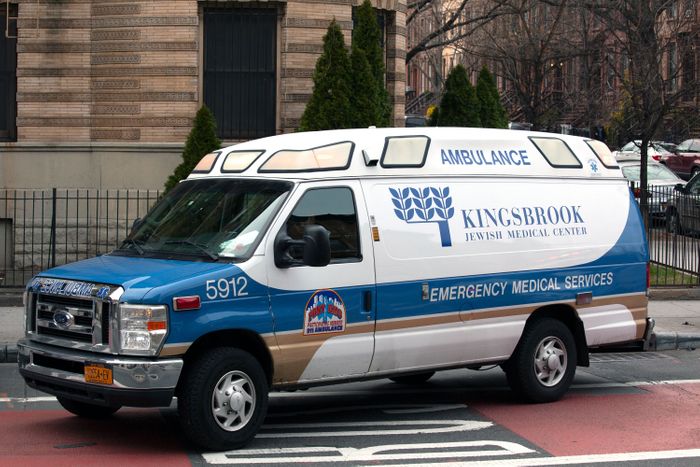Brooklyn Hospital’s Planned Shrinkage Paused To Tackle Coronavirus


By Josefa Velasquez, Claudia Irizarry Aponte and Yoav Gonen, originally published in THE CITY on 03/18/2020.

A $700 million state-brokered plan to consolidate services at three struggling Brooklyn hospitals was suddenly altered on Wednesday to mobilize to treat an expected wave of coronavirus patients, officials said.
Management at Kingsbrook Jewish Medical Center in Crown Heights alerted staff that a planned June 30 shuttering of several non-emergency medical services is being postponed, said Eric Smith, a union field director with the New York State Nurses Association.
Not only will the facility remain open to help treat an expected surge of coronavirus patients, but a unit with 30 beds that’s been dormant for a decade is scheduled to reopen, he told THE CITY.
“In order to meet the needs of this pandemic that we’re all in, all of our hospital beds are going to stay as is, and ready and available to assist,” said Assemblymember Latrice Walker (D-Brooklyn). “If we decided to close beds at this juncture, it’s not in the best interest of anyone.”
Interfaith Medical Center in Crown Heights and Brookdale Hospital Medical Center in Brownsville are also part of the transformation plan announced by Gov. Andrew Cuomo in January 2018.
The plan sought to boost preventative and primary care services, and rehab the three facilities while aligning their electronic records system. In the process, several dozen hospital beds were slated to be eliminated.Set featured image
The changes agreed to Wednesday also call for preparing two unutilized floors at Brookdale to deal with an expected flood of patients who may have coronavirus.
“We are putting a focus on all of our resources to make sure everyone is safe,” said Khari Edwards, a spokesperson for One Brooklyn Health System, a nonprofit that’s overseeing the transformation plan.
Cuomo’s office didn’t respond to multiple requests for comment.
Bed Shortage Looms
A doctor at Kingsbrook said the transformation plan would have eliminated dozens of ventilators, 20 intensive care beds and 20 other medical floor beds that could serve severely ill patients with confirmed coronavirus.
Nine isolation rooms, initially intended for patients with tuberculosis, had also been on the chopping block, said the doctor, who spoke on condition of anonymity.
State officials estimate that the apex of the coronavirus outbreak is going to hit the state on May 1, potentially overwhelming hospitals.
The state currently has 53,000 hospital beds and 3,000 intensive care unit beds — a fraction of what it’s expected to need in a few weeks.
State officials predict that they’ll require 55,000 to 110,000 hospital beds to serve New Yorkers who get sick from the virus, as well as anywhere between 18,600 and 37,200 ICU beds.
“How do you create new hospital beds? This is probably the greatest challenge,” Cuomo said Wednesday.
The Cuomo administration is working on identifying college dormitory facilities and former nursing homes that can be adapted into medical facilities, the governor said Monday.
Part of that plan would include transferring currently hospitalized people who need a “lower level of care” to the converted facilities, Cuomo told reporters Wednesday.
Hospitals around the state are also being asked to reschedule elective surgeries to free up beds for an influx of patients.
The USNS Comfort, a Navy ship that acts as a floating hospital with 1,000 hospital beds and 12 operating rooms, is slated to arrive in New York Harbor by mid-April to help with the state’s outbreak.
More City Beds
Throughout the week, Mayor Bill de Blasio announced a series of measures intended to boost the city’s hospital bed capacity by thousands.
Among the steps he detailed to create 8,300 new hospital beds:
• Bringing 350 beds online at the dormant Coler medical facility on Roosevelt Island
• Converting a new nursing home in Brooklyn that hasn’t yet opened into a 600-bed medical facility
• Making 150 new beds available at the Westchester Square Hospital in the Bronx
• Activating two vacant floors with 120 beds at the North Central Bronx Hospital
Roughly 7,000 beds will come from canceling elective surgeries at hospitals across the city, creating tented intensive care units in hospital parking lots or cafeterias, and discharging patients quicker if they can safely recover at home, the mayor said.
“We’re going to get our hands on anything and everything that can be converted into a healthcare facility,” de Blasio told CBS Radio Wednesday. “We’re going to see if we can convert hotels that can be made empty into medical facilities, or into places for those who may need a quarantine-like setting.”
De Blasio said that the number of confirmed coronavirus cases in New York City hit 1,871 as of Wednesday afternoon, including 11 deaths. Statewide, there were 2,382 confirmed cases earlier in the day — of which 549 required hospitalization.



